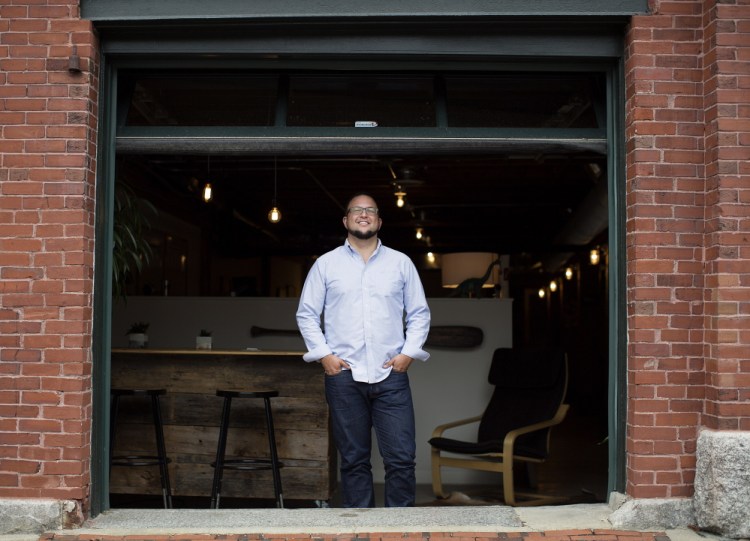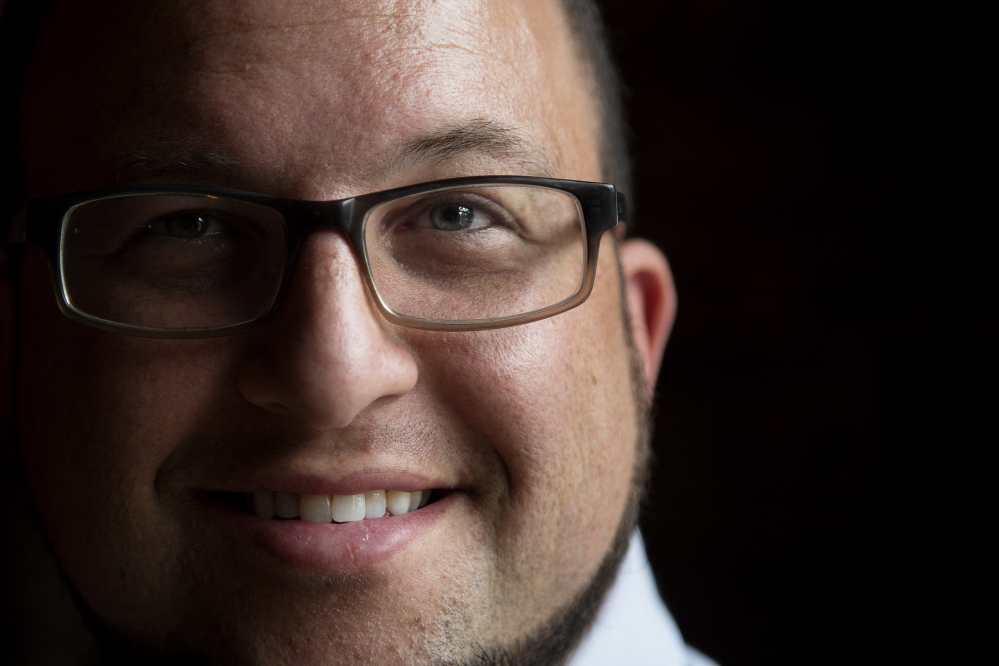The World Economic Forum is known for engaging celebrities and world leaders at its annual gathering in Davos, Switzerland. Now, the global organization is trying to engage young people in Portland.
The organization recently picked Portland to join a network of 450 other cities around the world to be part of its Global Shapers Community, an initiative it created in 2011 to engage young people in addressing the world’s problems, one community at a time.
“We want to bridge the global conversation that takes place throughout the year at the meetings such as the World Economic Forum in Davos with concrete action that has impact on a local level,” said Adrian Monck, the forum’s head of public engagement.
Portland, Monck said, is a perfect addition to the mix.
“We look for cities that are vibrant, big enough to support a hub, have a history of grassroots youth engagement and a high percentage of the population aged 30 and under,” Monck said. “Portland met these criteria and the profile of the founding curator convinced us to add the city to our global network of 450 cities.”
That “founding curator” is Adam Burk, the local person tapped to run the initiative in Portland.
Burk, 35, is a nonprofit founder and social innovator who has lived in Maine for the past 13 years. He runs a nonprofit called The Treehouse Institute and is director of the annual TEDxDirigo conference.
Many of his efforts already involve engaging youths – for example, he’s launched an annual TEDxDirigoYouth conference. So when the World Economic Forum asked him to lead the local effort, he jumped at the chance.
Burk recently returned to Maine after spending a week in Geneva, Switzerland, with curators from the 450 other hubs, where he attended workshops and received training on youth engagement. He thinks Portland’s hub will offer an important asset.
“I think it will be a unique space for millennials to co-create something of purpose and of impact,” Burk said. “I don’t know what other networks exist where young people can participate in such a global community.”
He also hopes it becomes “a go-to resource for civic and business leaders – for perspective, for consulting and for talent.”
Within the next year, Burk plans to identify 15 to 20 people between the ages of 20 and 30 who want to join the group and work on community projects.
The types of projects will be determined by the group, but other hubs offer examples. In Minneapolis, youths are working on community solar farms; in Nepal they are rebuilding an earthquake-resistant health care center; and in India, they are working on ending gender violence, Burk said.
More than 50 percent of the global population is under the age of 30, according to the United Nations, prompting the organization’s determination to include youths.
“The World Economic Forum runs Davos and other meetings and didn’t have a way to engage youth in any of that, so they created this program to provide youth a seat at the table,” Burk said.
The World Economic Forum paid for Burk’s trip to Geneva, but doesn’t provide ongoing funding for the hub. Burk hopes to raise $30,000 to get the effort going, some of which he intends to use to bring in John Bielenberg, a well-known designer who runs a San Francisco-based consultancy called Future Partners, to provide training. Bielenberg has lived in Maine since 2001.
“He does these blitzes that engage people in a rapid process of design thinking. Their method is to get out, be bold, think wrong and make small bets,” Burk said. “So through that process I want to launch the hub and train us all in that methodology and use it for the projects going forward.”
Bielenberg has worked with youths through a project he founded in 2003 in Maine called Project M. He’s also worked with youths throughout the country, often in distressed places such as Detroit and rural Alabama, and in Costa Rica, Germany and Iceland.
“Think wrong,” according to Bielenberg, “is about disrupting the normal way the brain comes up with solutions.”
Jan Kearce, executive director of Lift360, a Portland-based nonprofit that offers a young emerging leaders program, is excited by the Global Shapers Hub’s potential. She thinks the involvement of the World Economic Forum and its global network may entice more young people to become involved.
“I think because it’s new, innovative, creative and because it’s international and there’s an opportunity to network not just within this community, but beyond, it will attract this age group,” Kearce said.
The demographic considerations also can’t be ignored, Kearce said. “This is an aging state and as we think about the kind of energy these 20- and 30-year-olds bring to issues: One, it could be energizing; two, it offers a new perspective and not looking at things the same old way; and three, it gets them involved in the community.”
And, as it happens, young people who are involved in their communities are less likely to want to leave them.
Send questions/comments to the editors.




Success. Please wait for the page to reload. If the page does not reload within 5 seconds, please refresh the page.
Enter your email and password to access comments.
Hi, to comment on stories you must . This profile is in addition to your subscription and website login.
Already have a commenting profile? .
Invalid username/password.
Please check your email to confirm and complete your registration.
Only subscribers are eligible to post comments. Please subscribe or login first for digital access. Here’s why.
Use the form below to reset your password. When you've submitted your account email, we will send an email with a reset code.